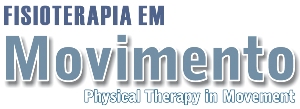Is there a dark side in science?
In May 2015, Rio de Janeiro hosted the 4th edition of the World Conference on Research Integrity. This conference, aimed to promote dialogue on research integrity, was made possible through the participation of the research funding agencies, educational institutions, governmental and nongovernmental organizations, and editors of major journals from 50 countries. In recent years, the debate about the integrity of scientific research has emerged as a critical issue in scientific research policy and gained significant public and political attention in the world 14thWorld Conference on Research Integrity. World Conference on Research Integrity 2015. {Acesso em 2015 Nov. 25}. Disponível em: Disponível em: http://www.wcri2015.org
.
http://www.wcri2015.org...
. This is a major problem worldwide.
It is known that cases of retraction of scientific papers have increased in recent years, and that in medicine, for example, the highest incidence of plagiarism/duplication occurred in researches from countries with a minor scientific impact 2Almeida, RMV; Rocha, K; Catelani, F; Fontes-Pereira, AJ; Vasconcelos, SM. Plagiarism Allegations Account for Most Retractions in Major Latin American/Caribbean Databases. Science and engineering ethics. 2015;1-10.,4Almeida, RMVR; Catelani, F; Fontes-Pereira , AJ; Gave, NDS. Retractions in general and internal medicine in a high-profile scientific indexing database. Sao Paulo Medical Journal. AHEAD. 2015; 00-00.. However, not everything is that bad. The quest to detect cases of misconduct is growing on a global scale, making use, for example, of the development of specific software to detect plagiarism. Also, editors from all over the world are contributing to better scientific information, and thus contributing to the evolution of science, which is in a way only an action to curb the consequences.
The growing number of misconduct can be explained, among other reasons, by the proliferation of "predatory journals", that publishes articles without merit analysis, as well by the poor use of statistical analysis of the results 3Carafoli, E. Scientific misconduct: the dark side of science. Rendiconti Lincei. 2015;26(3): 1-14.. However, these reasons are more like the "facilitators" of the problem, not its cause. So what would be the cause of scientific misconduct? "Publish or perish"? 3Carafoli, E. Scientific misconduct: the dark side of science. Rendiconti Lincei. 2015;26(3): 1-14.,5Lemos, AAB. Publicar e perecer. Ciência da Informação. 2005; 34(2):7-8. The value for quantity instead of quality? Low commitment to society? Poor quality of trained researchers? Ultimately, there is still no consensus on the subject.
What can the authors, reviewers, readers and editors of scientific journals do to improve the quality of research and, in particular, research in Physical Therapy? It's a question that I leave open, but let's start 2016 with motivation and determination to improve the researches and contribute to the advancement of Physical Therapy. In this sense, I would like to congratulate our authors, editors and reviewers, wishing everyone a prosperous new year and a science with integrity.
Enjoy the reading, everyone!
Aldo José Fontes-Pereira
Programa de Engenharia Biomédica,
Universidade Federal do Rio de Janeiro
Referências
- 4thWorld Conference on Research Integrity. World Conference on Research Integrity 2015. {Acesso em 2015 Nov. 25}. Disponível em: Disponível em: http://www.wcri2015.org
» http://www.wcri2015.org - Almeida, RMV; Rocha, K; Catelani, F; Fontes-Pereira, AJ; Vasconcelos, SM. Plagiarism Allegations Account for Most Retractions in Major Latin American/Caribbean Databases. Science and engineering ethics. 2015;1-10.
- Carafoli, E. Scientific misconduct: the dark side of science. Rendiconti Lincei. 2015;26(3): 1-14.
- Almeida, RMVR; Catelani, F; Fontes-Pereira , AJ; Gave, NDS. Retractions in general and internal medicine in a high-profile scientific indexing database. Sao Paulo Medical Journal. AHEAD. 2015; 00-00.
- Lemos, AAB. Publicar e perecer. Ciência da Informação. 2005; 34(2):7-8.
Publication Dates
-
Publication in this collection
Jan-Mar 2016

